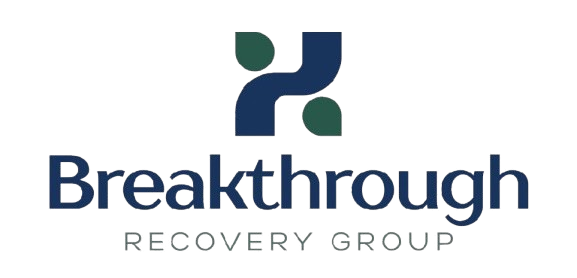Finding The Best Spokane Inpatient Treatment Center
Taking the first step toward recovery is a profoundly courageous act. Whether you or a loved one are considering an inpatient treatment center in Spokane, it’s normal to feel a mix of emotions—hope, uncertainty, and even apprehension. You likely have questions and concerns, and understanding what lies ahead can make this journey feel more manageable. Gaining clarity about the process can provide reassurance and empower you to make informed decisions during this critical time. This guide will walk you through everything you need to know about staying at a Spokane inpatient treatment center—from the range of services offered and daily routines to the supportive environment you’ll find and how to prepare for life after treatment. By learning more, you can take this vital step with confidence and optimism, knowing you’re moving toward a healthier, brighter future.
What Is Inpatient Treatment?
An inpatient treatment center is a facility where individuals live onsite while receiving care for addiction, substance abuse, or mental health concerns. These programs offer 24/7 support, ensuring that residents have access to professional help whenever they need it. Inpatient treatment provides a structured, supportive environment designed to help individuals focus entirely on their recovery, free from external distractions or triggers. Residents typically participate in a variety of therapeutic activities, including individual counseling, group therapy, and wellness programs, all tailored to their specific needs. This immersive approach helps build coping strategies, address underlying issues, and set the foundation for long-term recovery.
The ultimate goal of inpatient treatment is multifaceted:
- To stabilize individuals both physically and emotionally, ensuring they feel secure, supported, and ready to manage challenges in a healthier and more balanced way.
- To begin addressing the root causes of addiction or mental health struggles, such as unresolved trauma, chronic stress, or underlying emotional challenges, and work towards lasting healing and recovery.
- To equip individuals with the essential tools, resources, and support needed to achieve long-term sobriety and maintain overall wellness, empowering them to build healthier, more fulfilling lives.
How Is It Different From Outpatient Treatment?
The key difference lies in the level of immersion and support provided. Outpatient treatment allows individuals to continue living at home while attending therapy sessions on a part-time basis, making it a more flexible option for those with work, school, or family commitments. It is often suitable for individuals with milder conditions or those transitioning from more intensive care. In contrast, inpatient treatment requires a full-time commitment, where individuals temporarily reside at a treatment facility. This approach provides a structured environment with 24/7 support, making it ideal for those dealing with severe conditions, crises, or who need to step away from their everyday environment to focus entirely on recovery. This immersive approach is vital for those who:
- Struggle with severe addiction, facing challenges in breaking free from harmful substances or behaviors that impact daily life and overall well-being.
- Face an unsafe or unsupportive home environment, where physical, emotional, or mental well-being may be at risk due to neglect, abuse, or lack of stability.
- Require round-the-clock medical care or constant supervision to ensure their safety and well-being, including assistance with daily tasks or monitoring for health conditions.
What Conditions Are Treated?
Spokane inpatient treatment centers specialize in addressing a wide range of conditions, including but not limited to:
- Substance use disorders (e.g., alcohol, opioids, cocaine) are conditions where individuals develop a dependence on or misuse substances, leading to significant impairment in daily life, health, or relationships.
- Co-occurring mental health issues, such as depression, anxiety, PTSD, and bipolar disorder, which can significantly impact daily functioning and often require a combination of therapy, medication, and lifestyle adjustments for effective management.
- Behavioral addictions, such as gambling or eating disorders, involve compulsive behaviors that significantly interfere with daily life and can lead to emotional, physical, and social consequences.
What to Pack
Packing for inpatient treatment can feel overwhelming, but focusing on essentials will make your stay comfortable and stress-free. Essentials to bring:
- Comfortable, weather-appropriate clothing that allows for easy movement and keeps you prepared for changing conditions, whether it’s sunny, rainy, or chilly.
- Toiletries (such as toothpaste, toothbrush, shampoo, soap, and other essentials, ensuring they are non-alcohol-based).
- Identification and insurance documents, such as a government-issued ID, driver’s license, passport, or proof of insurance coverage.
- A notebook or journal for personal reflection, perfect for jotting down your thoughts, setting goals, or simply documenting your daily experiences and emotions.
- Approved medications (thoroughly reviewed and cleared with the staff beforehand to ensure safety and proper administration).
What Not to Bring
For the safety and well-being of all residents, most facilities prohibit certain items, such as:
- Alcohol, drugs, or any related paraphernalia, including items used for consumption or distribution.
- Electronics like laptops or tablets, unless specifically permitted for educational or work-related purposes, should not be brought.
- Weapons or sharp objects, including knives, blades, or any items that could cause harm or be used as a weapon.
- Expensive jewelry or large sums of money, such as high-value necklaces, rings, or cash that could easily be misplaced or attract unwanted attention.
- Outside food or drinks are not allowed on the premises to ensure cleanliness and maintain the quality of the environment for all guests.
Setting Expectations
Here’s what a typical day may look like during your stay:
- Morning: Start the day with a nutritious breakfast to fuel your body and mind, followed by a group therapy session where participants can share experiences, gain insights, and build a sense of community.
- Midday: Attend individual therapy sessions to work on personal growth, skill-building workshops to develop practical tools for success, or holistic activities like yoga and meditation to nurture your overall well-being.
- Afternoon: Engage in recreational or wellness-focused activities designed to help you relax and recharge. These could include yoga sessions to improve flexibility and mindfulness, group fitness classes, or creative workshops aimed at enhancing well-being and reducing stress.
- Evening: Participate in reflection groups or community support meetings to share your experiences, connect with others, and discuss any challenges or progress in a supportive and understanding environment.
Spokane inpatient treatment centers ensure every day is meaningful, balancing therapeutic activities with personal downtime.
Medical Detoxification
Many residents begin with medical detox, a carefully monitored process that safely removes harmful substances from the body while minimizing risks. Spokane centers place a strong emphasis on both comfort and safety during this critical first step in recovery. To ensure the process is as smooth as possible, many facilities use medication-assisted treatment (MAT), which combines FDA-approved medications with behavioral therapies to effectively manage withdrawal symptoms and reduce cravings. This approach helps individuals transition into the next phase of treatment with greater stability and confidence.
Individual Therapy
One-on-one sessions with a licensed therapist provide residents with a safe and supportive space to address personal challenges and work through trauma. These individualized sessions are tailored to meet each person’s unique needs, helping them gain insight into their struggles and develop effective coping strategies. Therapists often use evidence-based methods such as Cognitive Behavioral Therapy (CBT), which focuses on identifying and changing negative thought patterns, and Dialectical Behavioral Therapy (DBT), which helps individuals regulate emotions and improve interpersonal relationships. Together, these approaches empower residents to overcome obstacles and build a healthier, more balanced mindset.
Group Therapy
Group sessions foster a sense of community, allowing residents to share their experiences and learn from others. Common themes include:
- Building coping mechanisms to manage stress, handle challenges, and navigate difficult situations more effectively.
- Identifying and avoiding triggers to help prevent situations or environments that may lead to unwanted reactions or behaviors.
- Developing healthy decision-making skills to confidently evaluate options, consider consequences, and make choices that align with personal values and goals.
Holistic Therapies
Many Spokane inpatient treatment centers incorporate holistic therapies to promote mind-body wellness. These may include:
- Art therapy: Harnessing creativity as a powerful tool for self-expression and emotional healing. It allows individuals to explore their thoughts and feelings through various artistic mediums, such as painting, drawing, or sculpting, promoting personal growth and mental well-being.
- Yoga and meditation: Practicing yoga and meditation can help reduce stress, improve focus, and promote overall mental and physical well-being. These practices encourage mindfulness, enhance flexibility, and support relaxation, making them essential tools for maintaining a balanced lifestyle.
- Equine therapy: A therapeutic approach that involves building trust, emotional awareness, and self-confidence through guided interactions with horses. Participants often engage in activities like grooming, leading, and sometimes riding, which help foster a sense of connection and improve emotional well-being.

The Role of Healthcare Professionals
Recovery is a collaborative effort led by a multidisciplinary team, which often includes:
- Psychiatrists: Medical doctors specializing in mental health, focusing on diagnosing, managing medication, and providing treatment plans to address a wide range of mental health concerns, including anxiety, depression, and more complex conditions.
- Psychologists and therapists: Dedicated professionals who guide individuals through personal growth, emotional healing, and mental health challenges, helping them navigate life’s complexities and build resilience.
- Medical staff: Monitoring physical health, managing detox processes, and ensuring patients receive proper care and medication throughout their recovery journey.
- Case managers: Providing support with aftercare planning, connecting individuals to community resources, coordinating services, and ensuring a smooth transition to ongoing care.
Every professional plays a key role, ensuring care is tailored to your unique circumstances.
The Importance of Family
Research shows that family involvement significantly boosts the chances of long-term recovery. Spokane inpatient treatment center often encourage families to take an active role through:
- Family counseling sessions: Supportive sessions designed to help families improve communication, resolve conflicts, and strengthen relationships in a safe and guided environment.
- Education programs: designed to help individuals and families better understand addiction, recovery processes, and the tools needed for long-term success.
- Visitation opportunities: to maintain emotional connections and ensure families and loved ones can spend meaningful time together, strengthening bonds and providing essential support.
Navigating Challenges During Your Stay
Recovery is not without its hurdles. Common challenges include:
- Feelings of homesickness or isolation: Moving to a new place or being far from loved ones can leave you feeling disconnected and longing for the comfort of home, often leading to a sense of loneliness or separation from familiar support systems.
- Moments of self-doubt or discouragement: These are the times when you question your abilities or feel unsure about your path, often triggered by setbacks or comparing yourself to others.
Discharge Planning
Preparation for life after treatment starts early. Discharge plans typically include:
- Identifying a stable living situation that provides security, comfort, and meets long-term needs.
- Scheduling follow-up therapy sessions to ensure consistent progress and address any ongoing concerns.
- Setting achievable recovery goals to help track progress and stay motivated throughout the healing process.
Aftercare Support
Aftercare is critical to avoiding relapse. Spokane centers often help coordinate:
- Outpatient programs: Outpatient programs provide flexible treatment options, allowing individuals to receive therapy and support while continuing with their daily responsibilities such as work, school, or family commitments.
- Sober living arrangements: Structured, supportive housing designed to help individuals maintain sobriety and transition back into everyday life after rehab or treatment.
- Support group connections (e.g., Alcoholics Anonymous, Narcotics Anonymous): These groups provide a safe and supportive environment for individuals to share experiences, receive encouragement, and work through their recovery journey alongside others facing similar challenges.
Conclusion
Choosing a Spokane inpatient treatment center is one of the most important decisions you’ll make—but it’s also one filled with hope and the promise of a fresh start. Spokane inpatient treatment center provide a safe, supportive environment where you can focus entirely on your recovery journey. With comprehensive care plans tailored to your needs, compassionate and experienced staff, and a strong sense of community, these centers are designed to guide you every step of the way. From therapy sessions and medical support to group activities that foster connection and healing, each aspect of care is aimed at helping you build a healthier, brighter future. Take the first step toward recovery by reaching out to our expert staff today by calling 1 (509) 567-3382 or clicking Breakthrough Recovery Group. Your future self will thank you for making this courageous choice.





